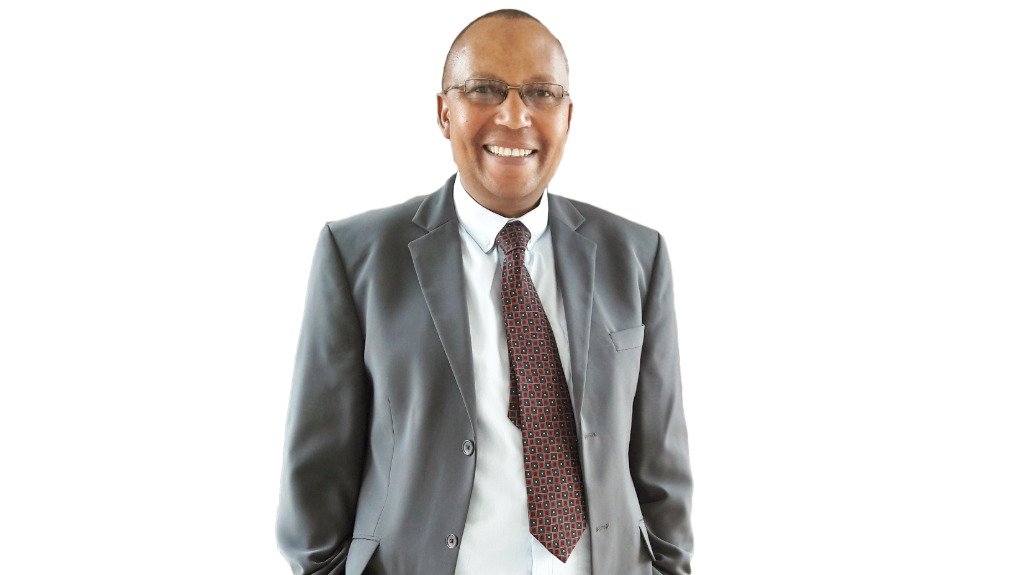
+27 11 441 1111
SRK House, 265 Oxford Road, Illovo, 2196, South Africa

Due diligence a cornerstone of mining’s future – consultancy


JOSEPH MAINAMA Anyone conducting a quality due diligence study must have insight into the many key facets of mining projects
It is increasingly vital for shareholders and financiers to get expert and independent corroboration on mining resources, plans, valuations and other aspects of each venture as mining projects are increasingly being presented with a wide and growing range of risks, reports mining consultancy SRK Consulting.
These efforts can be best performed through a detailed due diligence study – a critical phase that underpins the future success of the mining industry.
A common purpose of conducting due diligence is to support mergers and acquisitions, says SRK principal mining engineer and partner Joseph Mainama, adding that the process involves assessing the risks associated with an operational asset or project to ensure that the transaction is informed and well-considered.
“Stakeholders really need to understand, in some detail, what the risks are in the operational asset or project that they are targeting.
“Anyone conducting a quality due diligence study must therefore have insight into the many key facets of mining projects, so that the feedback can usefully inform decisions about the transaction,” he elaborates.
Therefore, a due diligence study examines the findings of the technical studies that have already been carried out and interrogates them for any potential shortcomings.
He notes that there are many aspects to consider, from reserve estimations and mining plans to geotechnical and groundwater issues.
“If the risks in areas like these are not fully identified or are miscalculated in some way, they have the potential to derail a project or to undermine its viability,” Mainama says.
The central aim of developing a due diligence study is to establish the veracity of the information on which investment decisions are taken, notes SRK principal mining engineer and partner Marcin Wertz.
“The buyer and seller in any transaction will be wanting to optimise their positions and they need to be certain that they share a common faith in the project data and plan. That is why it is important to have independent experts involved who have no vested interest in the project going ahead or not,” he notes.
Multiple Disciplines
The broad range of such an assessment requires that it is multidisciplinary in nature, explains SRK principal mining engineer and associate partner Jaco van Graan.
The due diligence process involves gathering and reviewing all available data, with parallel workflows where various disciplines examine the information simultaneously.
“A key initial step is to assess the mineral reserves, by verifying the resource and ensuring its accuracy,” Van Graan says.
“If the resource geologist encounters an issue in what was reported, they will need to recommend adjustments,” he says.
In this regard, SRK notes that geotechnical engineers need to consider how rock stability will influence the reserves and geohydrologists will check how the groundwater issues will affect the mining plan. In turn, the firm says process engineers examine whether the ore is as amenable to processing as the project authors claim.
“The mining process is complex and must be facilitated by the appropriate skills and resources,” Van Graan says, adding that a due diligence must therefore also consider the organisational structure that is proposed and the required logistics for mined and processed ore to reach the market.
“This means evaluating factors like the project’s human resources organogram, its choice and scale of equipment, energy availability and waste management,” he explains.
Potential liabilities also lie in the environmental and social arena – including rehabilitation and provision for closure, in addition to the broader social responsibilities of the project and its engagement with communities and other stakeholders.
SRK notes that it is also important to allow sufficient time to conduct a due diligence properly; the timeline involved in deals is often short and critical risks can be overlooked if the due diligence is unduly rushed.
Each discipline, the firm notes, should have adequate time to properly gather and consider the information, and access to the site is invaluable in this process.


